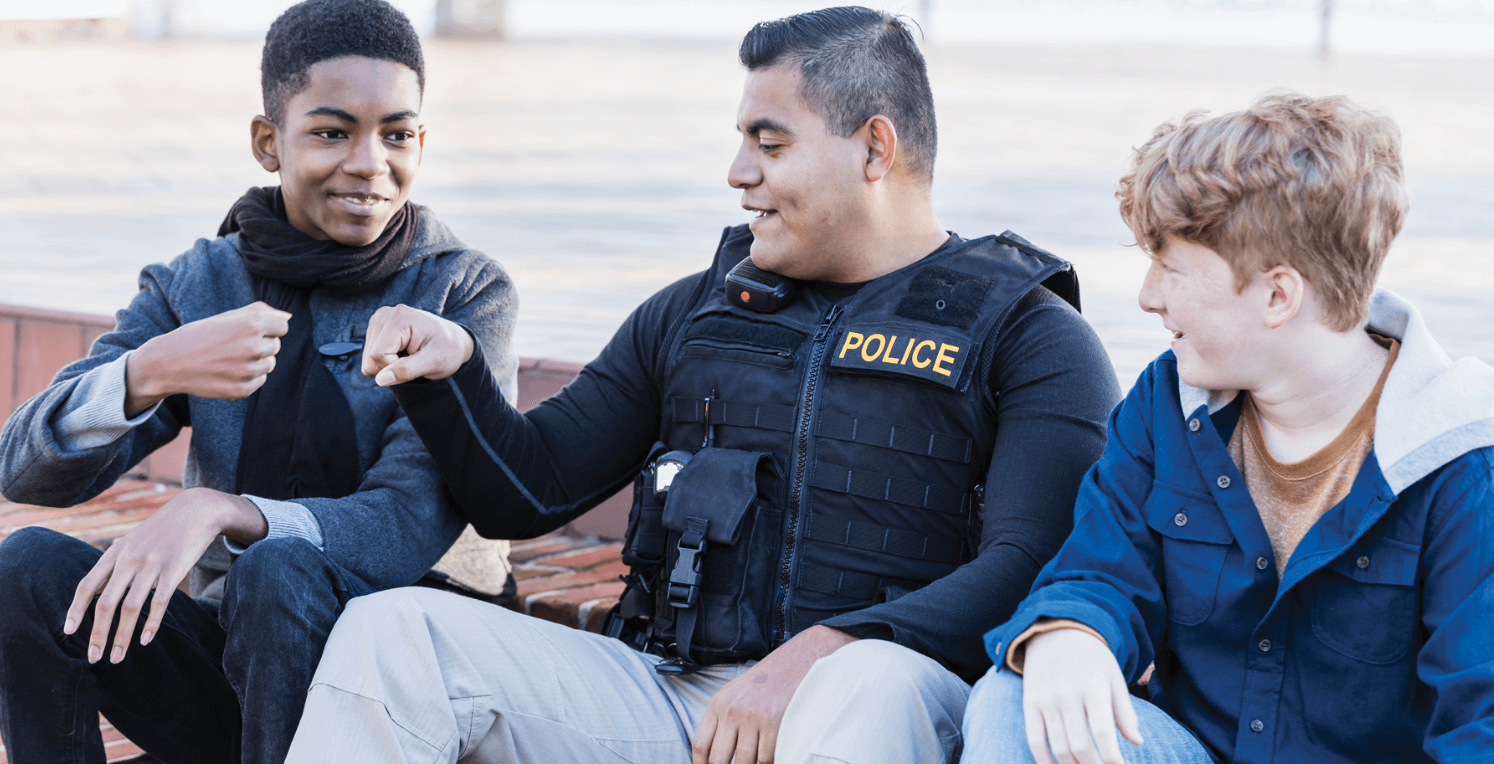January 27, 2026
How to Prepare Your Child with Autism for Interactions with Police
FEATURED POSTS
December 30, 2025
December 15, 2025
November 25, 2025
Blaring lights, screeching sirens, looming strangers with shiny badges — encounters with police can bring an overload of sensory experiences.
Situations involving police officers can be stressful for everyone, but they can be especially challenging for children with autism. These interactions can be unpredictable and overwhelming, leading to anxiety and confusion.
With a little preparation, you can take some of the stress out of the situation. Here are six steps to help you and your child feel safe and calm.
1. Learn About Local Training
Call your local police department to ask if their officers receive training on autism. Many departments now have programs that focus on this and officers who are trained to handle situations involving people on the autism spectrum. This awareness can make a big difference in an emergency and make sure that officers understand how to approach and communicate with your child.
2. Register Your Child
Many police departments allow you to register your child with them. This means that if an officer encounters your child, they will already have important information about your child’s autism diagnosis. You can provide details about how your child communicates, any behaviors they might exhibit, and what helps to calm them. This makes the officer more prepared to handle the situation calmly and appropriately.
3. Use ID Cards or Bracelets
Have your child carry an ID card or wear a medic alert bracelet. These should include key details such as your child’s diagnosis, emergency contact information, and specific instructions that might help in an emergency.
For instance, it could say: “I have autism. I may not respond quickly. Please speak slowly.” These items can quickly alert police about your child’s needs and provide them with the information they need to assist effectively.
4. Practice Role-Playing
Regularly practice different scenarios where your child may interact with the police. Teach your child to stay still, keep their hands visible, and follow simple instructions like “stay here” or “show me your hands.”
Use clear and repetitive role-play to make these actions second nature. Practice in various settings, like home, school, or the park, to make sure your child knows how to react in different environments. This practice can reduce anxiety and improve your child’s ability to follow instructions during an actual encounter.
Teach your child to follow these tips from Pathfinders for Autism about interacting with law enforcement:
- Always show your hands. Never put your hands in pockets or grab for something in a bag.
- Stay in place — do not run.
- Never attempt to touch or hug a police officer. The same goes for an officer’s dog.
- Try not to stand too close to the officer. If you’re not sure about your distance, ask the officer, “Am I standing far enough from you?”
- Do your best to tell the officer that you have autism.
- If you don’t understand something, do your best to communicate that to the officer.
5. Read Social Stories and Picture Books
Social stories are simple, visual guides that explain social situations. Create or find social stories that describe what happens during police encounters. For example, a story might show pictures of a police officer talking to a child and the child staying calm and listening. Read these stories with your child regularly to familiarize them with the process. This helps children understand what to expect, which can reduce anxiety and make the situation less scary.
6. Use Crafts and Art to Talk About Racism and Ableism
Use age-appropriate games and crafts to discuss complex issues like racism and ableism. Explain that sometimes people might treat others unfairly because of their race or disability.
Teaching your child about these issues in a simple way can help them navigate social dynamics more confidently. For example, you might use dolls to act out scenarios where someone is treated unfairly and discuss why that’s wrong. Helping your child understand these issues can prepare them for real-life situations and teach them empathy and self-advocacy.
Regular practice and preparation can significantly help your child stay safe and calm during police encounters. Always seek guidance from your autism service provider if you need additional support.
By being proactive and prepared, you can make sure that your child has the skills and confidence to handle these situations effectively. Preparation not only helps in emergencies but also builds your child’s confidence and understanding of the world around them.







